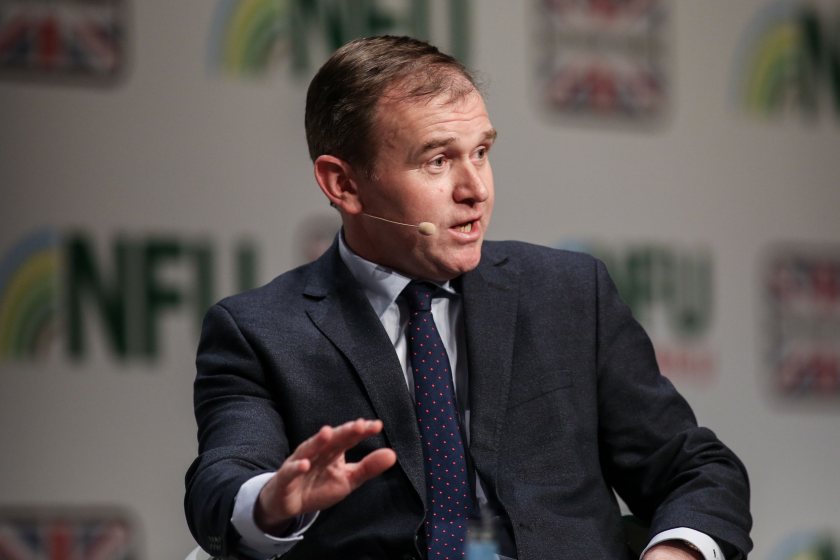
The former Defra Secretary George Eustice has admitted that the UK-Australia free trade deal "gave away far too much for far too little in return".
The UK’s post-Brexit trade deal with Australia is "not actually a very good deal”, Mr Eustice told MPs during a debate on Monday (14 November).
In a series of highly critical remarks, he said the Department for International Trade must be blamed for 'failures' while negotiating what he said in December 2021 was a 'historic' deal.
The free trade agreements with Australia and New Zealand are the only ones signed since the UK left the EU.
They led to criticisms of 'betrayal' among the farming industry, with groups fearing they would be undercut by inferior agri imports.
In his comments, Mr Eustice told MPs that the UK 'did not actually need' to give Australia full liberalisation of beef and sheep, as "it was not in our economic interest to do so".
“The first step is to recognise that the Australia trade deal is not actually a very good deal for the UK," Mr Eustice said in the Commons on Monday.
“It wasn’t for lack of trying on my part. Indeed, there were things that we achieved: a special agricultural safeguard for years 10 to 15, staged liberalisation across the first decade, the protection of British sovereignty in SPS [sanitary and phytosanitary] issues.
“It’s no surprise that many of these areas were areas negotiated either exclusively or predominantly by Defra on behalf of the UK team.
“But it has to be said that, overall the truth of the matter is that the UK gave away far too much for far too little in return.”
Trade experts and representatives of the farming industry had warned about the impact that the deal would have on their businesses while delivering few benefits.
Their concerns were repeated at a live session of the cross-party UK Trade and Business Commission in July 2021 after which Commissioners wrote to Mr Eustice to highlight their evidence.
Despite this, Mr Eustice boasted that the deal was a "good agreement" when it was signed in December 2021.
Naomi Smith, chief executive of campaign group Best for Britain, said the new admission "makes the government look like dodgy PPI dealers".
“We repeatedly warned that this deal would both dilute food and animal welfare standards in the UK and undercut British farmers while delivering next to no benefits.
“Eustice must now apologise for mis-selling the public this deal and Sunak must prioritise growth by improving the dud deals promoted by his predecessors and removing post-Brexit barriers to trade.”
NFU's President Minette Batters said last December that the UK-Australia trade deal had 'little benefit' in it for British farmers.
She added that the UK government had 'capitulated' to Australian demands to time-limit any safeguards for sensitive sectors.
She also warned there were no measures to allow the UK to control imports of food produced below the standards legally required of British farmers.
“This deal simply serves to heap further pressure on farm businesses at a time when they are facing extraordinary inflationary pressure and sustained labour shortages," Mrs Batters said.
“The government needs to level with farmers about the commercial reality of this and ditch the soundbites that lost any meaning a long time ago."
A DIT spokesperson said: “Our landmark trade agreement with Australia will unlock £10.4 billion of additional bilateral trade, support economic growth in every part of the UK and deliver for the 15,300 businesses already exporting goods to Australia.
“We have always said that we will not compromise the UK’s high environmental, animal welfare or food safety standards and the deal includes a range of safeguards to support British farmers.
“The independent Trade and Agriculture Commission also recently concluded that the deal upholds the UK’s robust domestic protections.”
